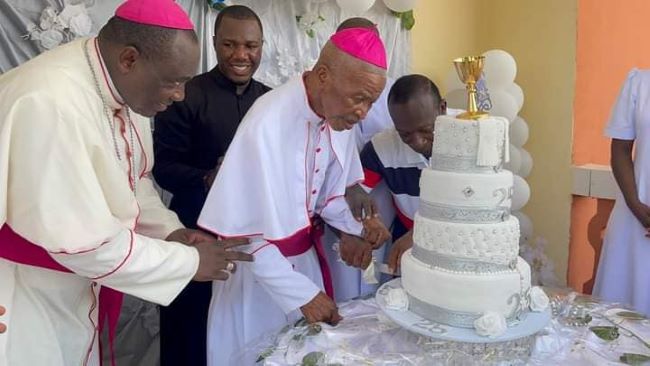Categories
Archives
- April 2024
- March 2024
- February 2024
- January 2024
- December 2023
- November 2023
- October 2023
- September 2023
- August 2023
- July 2023
- June 2023
- May 2023
- April 2023
- March 2023
- February 2023
- January 2023
- December 2022
- November 2022
- October 2022
- September 2022
- August 2022
- July 2022
- June 2022
- May 2022
- April 2022
- March 2022
- February 2022
- January 2022
- December 2021
- November 2021
- October 2021
- September 2021
- August 2021
- July 2021
- June 2021
- May 2021
- April 2021
- March 2021
- February 2021
- January 2021
- December 2020
- November 2020
- October 2020
- September 2020
- August 2020
- July 2020
- June 2020
- May 2020
- April 2020
- March 2020
- February 2020
- January 2020
- December 2019
- November 2019
- October 2019
- September 2019
- August 2019
- July 2019
- June 2019
- May 2019
- April 2019
- March 2019
- February 2019
- January 2019
- December 2018
- November 2018
- October 2018
- September 2018
- August 2018
- July 2018
- June 2018
- May 2018
- April 2018
- March 2018
- February 2018
- January 2018
- December 2017
- November 2017
- October 2017
- September 2017
- August 2017
- July 2017
- June 2017
- May 2017
- April 2017
- March 2017
- February 2017
- January 2017
- December 2016
- November 2016
- October 2016
- September 2016
- August 2016
- July 2016
- June 2016
Featured
 Bishop Francis T. Lysinge @ 25!
Bishop Francis T. Lysinge @ 25!  Understanding the Biya Francophone regime’s support for the Israeli genocide in Gaza
Understanding the Biya Francophone regime’s support for the Israeli genocide in Gaza  Poverty under Biya: Cameroonians embrace Chinese language for brighter futures
Poverty under Biya: Cameroonians embrace Chinese language for brighter futures  Cameroon is broken: Who can fix it?
Cameroon is broken: Who can fix it?  Ethiopia: U.S Senator Cardin Statement on the Killing of Bate Urgessa
Ethiopia: U.S Senator Cardin Statement on the Killing of Bate Urgessa
Most Commented Posts
 4 Anglophone detainees killed in Yaounde
4 Anglophone detainees killed in Yaounde
19 comments Chantal Biya says she will return to Cameroon if General Ivo Yenwo, Martin Belinga Eboutou and Ferdinand Ngoh Ngoh are sacked
Chantal Biya says she will return to Cameroon if General Ivo Yenwo, Martin Belinga Eboutou and Ferdinand Ngoh Ngoh are sacked
13 comments Anglophone Nationalism: Barrister Eyambe says “hidden plans are at work”
Anglophone Nationalism: Barrister Eyambe says “hidden plans are at work”
12 comments The Anglophone Problem – When Facts don’t Lie
The Anglophone Problem – When Facts don’t Lie
12 comments Largest wave of arrest by BIR in Bamenda
Largest wave of arrest by BIR in Bamenda
10 comments
Latest Tweets
Featured
-

King Charles III to resume public duties next week following cancer treatment
-

Indomitable Lions Crisis: FIFA refuses to acknowledge Marc Brys
-

Bishop Francis T. Lysinge @ 25!
-

10 Million Cameroonians lived on less than $1.80 per day
-

Football: Xavi to remain as Barcelona coach
-

Biya regime delays bond sale amid regional market strain
-

Historic agreement between Nigeria and Cameroon to tackle wildlife crime
© Cameroon Concord News 2024
16, January 2022
Former president of Mali Ibrahim Boubacar Keita dies at 76 0
Mali’s former president Ibrahim Boubacar Keita, who led the West African country from 2013 until he was ousted in a coup in 2020, died at the age of 76 in Bamako Sunday, his family said.
Keita was two years into his second five-year term when in 2020 he faced widespread street protests against his government and was toppled by the military, which is now under regional sanctions for failing to restore civilian rule.
“President IBK died this morning at 0900 GMT in his home” in Bamako, a family member told AFP, using the former leader’s initials; several other family members confirmed his passing.
The cause of Keita’s death was not given.
In the weeks before the 2020 coup, he had been struggling with protests fuelled by his handling of a jihadist insurgency and failure to turn around Mali’s floundering economy.
Snail-paced political reforms, decrepit public services and schools, and a widely shared perception of government corruption also fed anti-Keita sentiment, driving tens of thousands of protesters into the streets.
Keita was forced out of office on August 18, 2020 by young military officers who staged an uprising at a base near Bamako before heading into the city, where they seized Keita and other leaders.
Under pressure from the West African bloc ECOWAS, the junta that emerged from the rebellion released Keita on August 27 and returned him to his residence in Bamako, under surveillance.
He suffered a mini-stroke the following month, and was sent to United Arab Emirates for treatment.
Campaigning credentials
The ruling junta would stage another coup in May 2021.
ECOWAS this month agreed to sanction Mali after the junta proposed it would to stay in power for up to five years before staging elections – despite international demands that it respect a promise to hold the vote in February.
The son of a civil servant, Keita was born in the southern industrial city of Koutiala, the declining heartland of cotton production.
After studying literature in Mali, Senegal and France – his great-grandfather was a French colonial soldier who died in the Battle of Verdun in World War I – Keita became an adviser for the EU’s overseas development fund before heading a development project in northern Mali.
He campaigned against general Moussa Traore, Mali’s former president ousted in 1991 by a military coup.
He then rose through the ranks under Alpha Oumar Konare, the country’s first democratically elected president.
As a socialist prime minister between 1994 and 2000, he quelled a series of crippling strikes, earning a reputation as a firm leader and helping to set up his landslide election in 2013 – when he finally ascended to the presidency after losing runs in 2002 and 2007.
Source: AFP